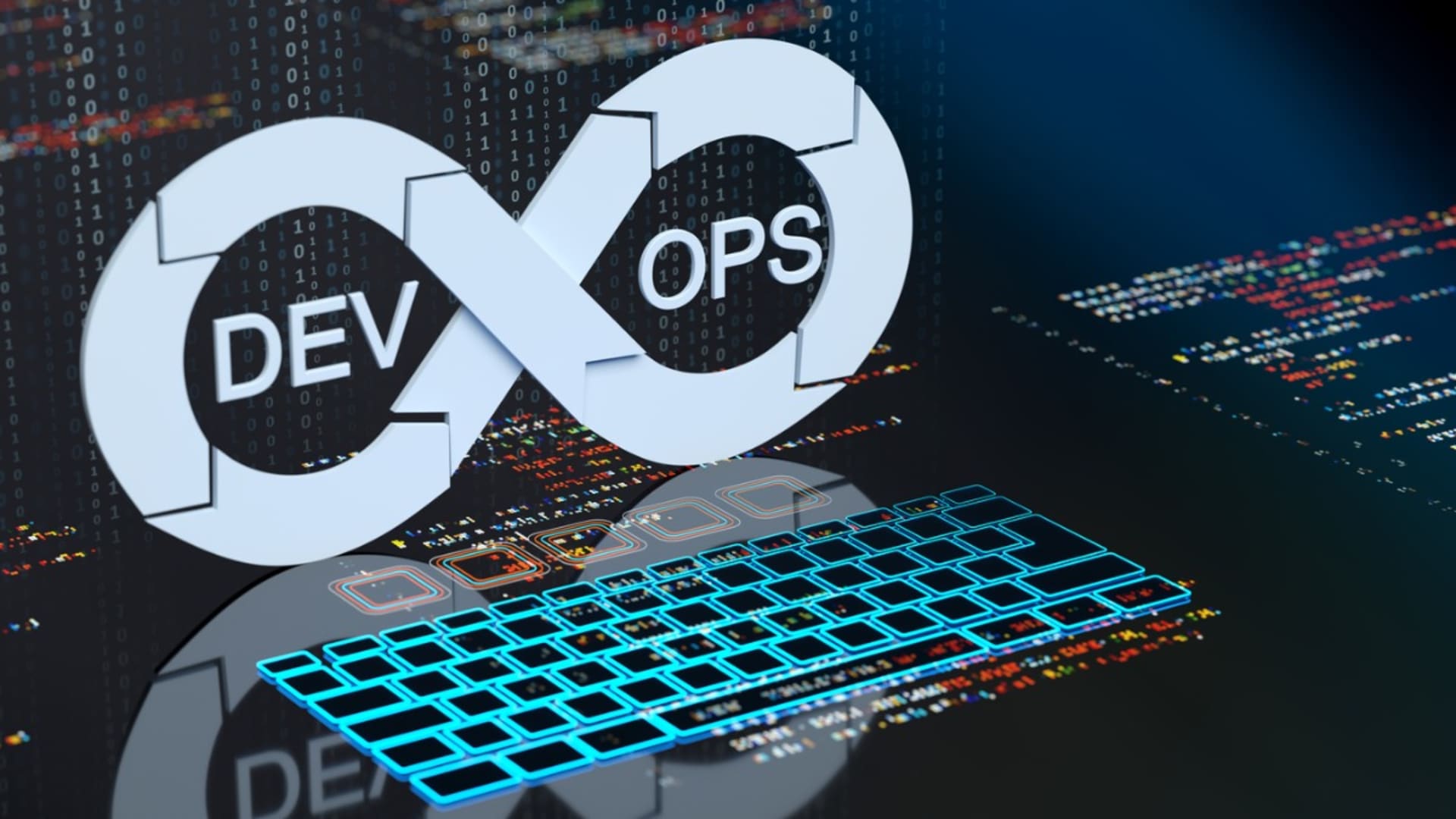To put it simply in the words of the IT industry, Azure DevOps is “the next big thing” in tech. Microsoft’s Azure DevOps is a Software as a Service (SaaS) product and offers a complete DevOps toolchain for creating and deploying software. Microsoft introduced this product to meet the demands for DevOps adoption in the software development processes and tech worlds.
Formerly known as Visual Studio Team Services, Azure DevOps is a product that provides teams with reporting, requirements management, version control, project management, automated builds, and even testing and release management capabilities.
The development of Azure DevOps is the culmination of more than 15 years of effort and learning in the provision of tools to support software packages and software development process teams. This extensive product oftentimes requires companies to pay for Azure DevOps consulting services.
Azure DevOps is a helpful product for a variety of tasks and situations in the development pipeline with many benefits, including:
- Improved Collaboration: Teams use Azure DevOps for centralized code hosting and management as well as for maximizing their efficiency. The Azure DevOps cloud format guarantees that almost all code remains in storage in a single location but allows for collaboration in the cloud resources to help improve coding efficiency. Popular teamwork platforms, like Microsoft Teams, are easily accessible within the Microsoft ecosystem and offer integrations with third-party data sources.
- Continuous Integration: Thanks to the trustworthy Azure DevOps platform and its emphasis on configuration management, devs produce and deliver solutions continuously. Whether a team deploys a solution to Azure or another external cloud platform, the Azure DevOps CI/CD pipeline manages the whole solution’s life cycle from development to delivery. Thanks to the aforementioned integration options in Azure DevOps, workflows, delivery, and handover procedures are essentially frictionless, thus enabling continuous delivery.
- Platform-Neutral: Microsoft remains an industry leader in promoting teamwork, even among its competitors. As a result, Azure DevOps excels at integration, with a wide variety of extensions and connectors for popular business and community tools like Slack and ServiceNow. The days of proprietary, closed-off solutions from a single provider are over.
- Safety and Trustworthiness: Since Microsoft hosts Azure in IRAP-certified data centers, users rest assured that their information and systems remain protected to the highest standards. Every minute of every day, Azure DevOps has someone there to help customers out, and it’s up and running 99.95% of the time or they offer customers money back. The result is a platform where teams develop solutions with the utmost confidence and security, without compromising the flexibility to incorporate open-source alternatives.
- Automatic Updates: Azure DevOps consulting solutions take care of automatic updates and security patches, so users never have to worry about keeping their software up to date. Businesses adopting a CI/CD architecture also skip the downtimes caused by upgrades. Substantial monetary and time savings make it possible for teams to focus on improving other areas of product delivery.
- Customization: The integration options in Azure DevOps allow customers to implement their own preferred methods and tools when developing and integrating solutions. This allows for leeway between groups and facilitates the development of customized or exploratory delivery methods. Microsoft Azure DevOps implementation supports this customization to a great extent.
Azure DevOps Services & Tools
Azure DevOps offers a range of developer services to help teams organize their tasks, work together on coding projects, and then create and deliver applications. When creating software, developers, project managers, and contributors work together under the umbrella of Azure DevOps, which fosters a collaborative DevOps culture and set of procedures
This product enables businesses to produce products and make improvements more quickly than they could with conventional infrastructure automation techniques. Teams get to choose from working on-premises with Azure DevOps Server or in the cloud with Azure DevOps Services. Depending on a business’s needs, they may also choose to utilize one or more of the following DevOps tools:
- For source control of code, Azure Repos offers Team Foundation Version Control (TFVC) or Git repositories.
- To support continuous integration and delivery of apps, Azure Pipelines offers build and release services.
- Azure Boards helps teams plan and track their work using the Kanban and Scrum frameworks.
- Azure Test Plans offers a number of methods, including manual/exploratory testing and continuous testing, to test apps.
- Teams have the ability to exchange packages from both public and private sources, including Maven, npm, NuGet, and others, while also integrating package sharing into their pipelines using Azure Artifacts.
The following collaboration tools are also available:
- Customizable dashboards for teams with widgets used to share information, progress, and trends
- Integrated wikis for information exchange
- Customized notifications
- Extensions to integrate with other well-known services like Campfire, Slack, Trello, User Voice, and others, as well as to create unique extensions
Is Azure DevOps Consulting Right for Your Company?
DevOps is becoming more and more essential as businesses strive to become more productive, but sometimes teams don’t really know where to start with Azure DevOps. After all, this SaaS product differs from typical office procedures and calls for additional consideration to ensure proper item management.
While implementing Azure DevOps definitely helps companies out, the transition to the product is a bit of a daunting task for already busy development teams. Hiring Azure DevOps experts is a great way for companies to get their new system up and running in the most effective and efficient way without pulling existing team members from their normal responsibilities or for a role they aren’t qualified for.
Azure DevOps consulting helps companies assess their Azure resources and current IT roadmaps and maturity to help create the right adoption roadmap for Azure DevOps solutions. With their experience and expertise in the product, they help make sure companies understand the product’s capabilities while creating strategic implementation and automation plans. For companies with little to no experience with DevOps approach, let alone Azure DevOps, working with a consultant is usually the right way to start.
Azure & the Software Development Lifecycle
When it comes to software development, every phase in its lifecycle is vital, from planning and design to deployment and maintenance. Microsoft’s Azure, through its Azure DevOps suite, offers comprehensive tools that touch upon each phase of the software development lifecycle (SDLC). Let’s delve into how Azure enriches the SDLC:
- Planning: Azure Boards, a part of the Azure DevOps suite, supports agile planning. This includes tracking of backlogs, sprints, and user stories. It allows teams to prioritize work, visualize progress, and manage their backlogs with drag-and-drop capabilities.
- Development: Azure offers an integrated development environment through Visual Studio and VS Code. Developers can use Azure Repos for version control, ensuring that code remains consistent and allowing for simultaneous coding without overlaps.
- Testing: Before deploying applications, it’s vital to ensure they work as intended. Azure Test Plans offer a comprehensive toolset for manual and exploratory testing. It supports various testing frameworks and allows for automated testing, ensuring that the code is robust and ready for production.
- Deployment: Azure Pipelines facilitate the smooth deployment of applications. With its continuous integration and continuous deployment (CI/CD) capabilities, Azure ensures that the code moves from the development phase to production seamlessly, ensuring rapid delivery.
- Monitoring & Feedback: Once deployed, Azure Monitor and Application Insights offer tools to monitor applications, helping to identify bottlenecks or potential issues. This continuous feedback mechanism ensures that any anomalies are quickly addressed, optimizing performance and uptime.
- Maintenance: Azure DevOps not only supports the primary phases of SDLC but also ensures that applications are maintainable in the long run. The cloud infrastructure provides the elasticity to upgrade or scale applications as per business needs. Azure’s built-in automated update mechanism ensures that all tools and services are always current with the latest patches and security updates.
- Integration with Third-party Tools: One of the key strengths of Azure DevOps in the SDLC is its ability to integrate with a plethora of third-party tools. This flexibility ensures that developers can incorporate tools they are familiar with or those that are best suited for specific project needs.
- Collaboration Across Teams: Azure DevOps promotes a culture of collaboration, bridging the gap between developers, testers, and operations. The suite offers tools that foster communication, ensuring that teams are aligned and moving in cohesion toward a common goal.
In conclusion, Azure’s capabilities span across the entirety of the software development lifecycle. Its seamless integration into the SDLC ensures that teams can efficiently move from concept to code and from deployment to monitoring with speed, reliability, and security. With Azure and Azure DevOps, Microsoft is offering a holistic solution for modern-day software development challenges.
If you enjoyed this, be sure to check out our other DevOps articles.







